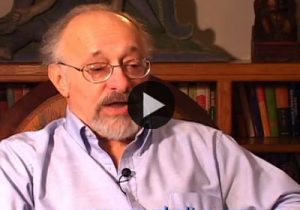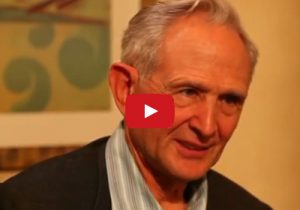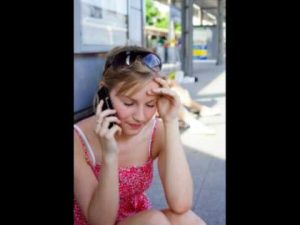VIDEO: Dr. Kirk Schneider on How to Experience Life More Fully
Watch an excerpt from PsychAlive’s interview with Dr. Kirk Schneider.
Dr. Kirk Schneider – Six Critical Lenses Through Which to More Fully Experience Life
Lisa Firestone: As individuals, what do you think people could do to develop more meaning in their own life , on a personal level?
Kirk Schneider: I think depth psychotherapy is not a bad way to begin that process. Beyond that, dropping the devices for a time, having some undistracted spaces to go to, whether that’s a walk in nature or maybe some time in one’s room, meditating could certainly be critical to that.
Travelling, if one has the chance, if one has the chance to do that, keeping a diary of one’s reflections about life could be part of it. Basically dropping some of the routines that have been bogging that person down in life.
At the end of Awakening to Awe, I kind of collated critical themes, or I call them lenses, that helped people to cultivate that sense in their lives and there are 5 or 6 of them, but I think these are things that people could well do, if they’re willing.
One is to put on the lens of transience, as I call it. And that means being more attuned to the passing nature of life and time. Just gearing yourself to that for a few moments can give you a whole other take on life. Like right now, we’re ending soon, this is all going to pass, this is a very precious moment — in that background, especially. It intensifies one’s awareness to the moment.
Putting the lens of unknowing. Can you, you know, go to that party without the usual assumptions about the people you’re going to meet, you know, the usual chit chat you’re going to engage in? Is it possible to have an adventure going to that party that you usually can’t stand, let’s say? It may be a hard thing to do in many circumstances but try putting that lens on. You may find that something surprising could happen, just having that openness to not knowing, not predicting, not presuming.
The lens of surprise, can you be open to something really out-of-the-blue happening? I mean, that could be scary, too. But it can also be energizing to one’s life and enhance one’s presence to living, to be aware that we can expand, it’s very possible that that’s around the corner, you know, in a life enriching way, not just tragic.
The lens of vastness, a recognition that every moment, every relationship is connected to something much greater than just being able to have that bird’s eye view. Just try that with your loving partner. I’ve tried it sometimes and it’s very moving to me that we’re in some sense traveling together through space and time.
KS: Just that Gestalt switch of being aware that we’re, in a real sense, we’re space travelers, we’re strapped in this little capsule together. Talk about a romantic moment, that could be a beautiful romantic moment, off into the stars. And the excitement of the unknowing of that, the vastness of that, what you might discover, the poignancy of it, too, realizing that time is passing.
Another lens is the lens of sentiment. Instead of perceiving a situation more from your intellect or from a kind of everyday routine way of seeing things, try coming from your gut for a while. Drop down. See what it’s like to be with your kid, your wife, your husband, your friend, from here.
Again, can change the whole filter, that lens. Sentiment is not just reactive emotion, it’s kind of a refined present emotion. And there’s so much that can open up from that emotional place. We talk about emotional intelligence –certainly a part of it. Also a part of it is getting to know another’s story, the many layers of that story and how deep that can go.
The final lens is the lens of solitude. As I was alluding to before — being able to take time to step back, step away from all the hubbub and just be present to yourself, be present to your surroundings. Get to know being, just being, making spaces for that. You may be surprised how rich that experience can be.
I think too many people stereotype that as, you know, dead air, or that’s the last thing we want to do, you know, is to drop out of activity or doing something. I think the East has much to tell us, to show us about that, about, you know, the slowing down, the alone times, the just simply being.
So much of this I would put in a nut shell as helping ourselves define ground within groundlessness. In a way I see that as the ultimate aim of good psychotherapy, is helping a person to find ground within groundlessness.
LF: I think about that last one you were talking about. Dan Seigel is fond of saying that you need to become a human being, not a human doing. And we’re so caught up in the human doing idea. But being just a human being that’s, you know, again, I think it has to do with presence and part of that dropping in, like you said, to really experience ourselves and other people.
KS: And it’s not just in words or categories. In fact, it’s beneath that. It a re-occupation of our being. It’s embodiment. You can’t get there through so many of the narrow filters of our day-to-day life.
LF: It’s not just being in our heads. We’re a body, too. Being fully present to all of that and our interactions with others.
KS: … and others help us get there, too. Or they can help us.
LF: Yeah. I like the enlightened helpers or, I don’t know the term you used —
KS: …helpful witnesses
LF: … helpful witnesses idea and how important that is to seek those people out in your life and to offer to be that for other people.
KS: Absolutely. And these are people who have somehow held the paradoxes, learned to hold the paradoxes of living. They’ve been there. That’s why they can connect with a wounded person because they’ve been there themselves in some way.
But they didn’t just shun it, they didn’t just inflate themselves to avoid it or end up totally being crippled by it. They maybe had a helpful witness themselves who could embody, who could grow their embodiment to be with a much larger experience of living. And that comes across to that wounded person in a profound way, much more than words can often convey.
I mean, that was the sense that was the most important part of my own therapy, was my therapist’s complete presence. That’s basically what I remember. I don’t remember anything else. I remember he was rock solid and that was crucial for me. Rock solid, but not immune or inured, you know.
Tags: life, successful living, video, videos








Leave a Reply